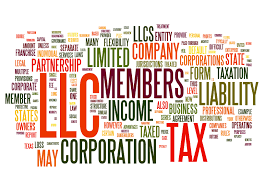
Silicon Valley has been in the news a lot lately. And will continue to be. The critically important privacy and data security issues going on with Facebook and elsewhere aren’t going away any time soon. Regardless of which side of the “regulate them more heavily or not” you’re on, every U.S. business and consumer can and should be taking to steps, every day, to protect themselves from the ever-present online threats, which brings me to today’s subject, the journey entrepreneurs embark on. The award-winning HBO Series, “Silicon Valley”, beautifully demonstrates it all, the good, the bad, the ugly.
When asked about what I do, I tend to go through the list – primarily outside general counsel, also chief compliance officer, to a variety of privately-owned companies from tech companies to software developers, healthcare providers, architectural firms, real estate developers, retailers, restaurants, breweries, CPA firms, and others; trusted, “go to” legal advisor to start-up ventures and more mature, national enterprises for the last two decades. Doing deals here on the east coast and throughout Silicon Valley.
On any given day, it’s often so wide ranging, it isn’t given to short synopsis. But, my experience working alongside business leaders has been humorously, surprisingly realistically portrayed in the critically acclaimed HBO series Silicon Valley – a show about a few techie guys starting out in a garage with an idea that could revolutionize how we communicate online, (sound familiar?).
There’s really no short hand way to explain what I do on any given day, but odds are it’s perfectly encapsulated in any given episode of Silicon Valley. If there was a short way to explain pretty much what I do in my law practice, the Silicon Valley series, depicts it all, perfectly setting the stage for what riding the wave called “entrepreneurship” is really all about. One day closing a time-sensitive buyout of a client’s software company and the next responding to a federal trademark infringement claim for a new business owner, who didn’t get counsel before going to market arousing the unwanted attention of a big, internationally-recognized brand.
If you haven’t seen it, the series revolves around the fictional Silicon Valley company “Pied Piper” a company with a world changing idea, but little else.

“Silicon Valley”
They wouldn’t have made it past season one, episode one – it just started its fifth season if the fumbling company’s founders hadn’t decided to go it alone, not hire legal counsel (or any other advisors for that matter) and so entertainingly depicting everything that can and probably will happen at some point over the life of a business, certainly almost everything that can go wrong, because of that all important first decision .
Like many businesses, real or fictional, Pied Piper developed a product with great potential and, well of course, money’s in short supply. While most of the CEOs and other business people I work with in my real day job are incredibly professional and good at what they do, not everyone we encounter knows what they’re doing or wants to play by the rules (short hand for not really legal or ethical). Sometimes new businesses who don’t have counsel or aren’t savvy enough to avoid unscrupulous potential partners look for some “short hand” way to get there. Often this is their first mistake.

Silicon Valley Series, the early tribe
Silicon Valley takes us on a meandering, often remarkably accurate path of what can does go wrong – crooked dealings with venture capitalists, non-disclosure agreements that blow up big time, in-fighting among the board of directors, a litany of lawsuits (completely avoidable, of course), succession issues, conflicts of interest, non-compete clauses, employment contracts and more… All sorts of things. All sorts of expensive, unnecessary things. But, therein, lies the draw of the series.
In short, pretty much all the things any company would be dealing with from its formation from attracting investors, protecting intellectual property, guarding proprietary information, gaining market share, negotiating complex contracts to resolving business disputes and much more…
Exactly the kinds of things I do every day, helping clients get there, closing deals, capturing opportunities, evaluating risks, negotiating settlements and achieving good results while helping them avoid the inevitable pitfalls in today’s increasingly complex business environments. Legal issues are, of course, endemic in any business undertaking. And Silicon Valley along with any number of real life examples I’m recalling from decades of working alongside CEOs prompted me to share my insights – on hiring someone with the right talent and experience before making a commitment, before signing on the dotted line, before being “knee deep in a big mess” is one of the smartest decisions any business will make. The moral of the story, and a good general rule of thumb, calling on legal counsel only after the fact for that big, probably unnecessary, “clean up” job is going to cost a lot more and I’m not just talking about money. One of the most important things a good advisor does is protecting the client and limit the risks, by knowing how to work around the inevitable issues, while getting clients to where they need to go.

Silicon Valley Series, women who know how to get things done
And we haven’t even gotten to some of the top concerns faced by businesses today such as growing cyber security risks, trademark infringement claims, and ever-present bots out there trolling the internet causing expensive, disruptive, completely unnecessary problems.
While its viciously funny in the series, not so funny in real life.
I’ve dealt with many of these issues over the past two decades and have seen, too closely, the tremendous, unnecessary, financial and personal strain these kinds of issues take on the unprepared. The human and financial costs can be staggering enough to do a business in.
Silicon Valley is incredibly funny, sometimes hysterically so, sometimes ingenious, profane, and ultimately enormously entertaining. It takes the viewer on some interesting, yet highly realistic, twists and turns. Because Pied Piper is fictional, its journey is entertaining and, of course, much more dramatic than real life. That said, the series’ attention to detail is astounding. And in highly-instructive what can and does go wrong. Unlike their fictional company, the writers and producers of Silicon Valley, show the kind of research, attention to detail, and planning that would be the envy of any company. They employ hundreds of volunteers writing and reviewing scripts to get it as close to reality as possible – among them academics, entrepreneurs, lawyers, employees at Google, Amazon, Netflix and other well-recognized name companies. A show about a rudderless company is run by the most detailed oriented show runners in the business.
Like many successful tech companies and other businesses, Silicon Valley’s founder, may be a genius in one area, maybe two, but knows dangerously little about the complexities of starting and running a business. Or, how to protect his ideas and investments. Or, knowing where the cracks in the sidewalk lie.

Nicely said, successful entrepreneurs know it takes vision and the framework to get there
Whether company founders are brilliant, of the “genius variety” or otherwise, (and p.s. it’s not a requisite), it’s just human nature to have a myopic, hyper-focus on one (or maybe two) areas of expertise. Which isn’t conducive to being able to see limitations in other areas. Entrepreneurs by nature, are typically reluctant to delegate or give up control of their creations. After all, it’s their baby.
All too often, new businesses go about it all by trial and error, while trying to save money, listening to friends, who are remarkably short on expertise, living from day to day. In Silicon Valley as in the real world, a very costly mistake.
Pied Piper, like many smaller start-ups can move quickly, that’s great. But without adequate funding or even with funding sometimes on the way, businesses hesitate to consult properly qualified advisors – while relying on anecdotes of how things are done. They’ll stumble through, well, everything, and end up spending far more time, money and energy than if they had good, proactive advisors on board from the outset.
To say Pied Piper stumbles out of the gate would be an understatement, they find out quickly, just before a major meeting about funding, that their product name has already been taken. Oops. How’d that happen? Really, No one bothered to do a trademark search! The subsequent negotiations to buy the name are as humorous as they are sobering. These kinds of issues have been significantly on the rise over the past few years, and what I’ve seen, not remotely as humorously, in my own practice – pitching an idea or going to market without securing the right protections is a huge, costly mistake.
One thing about our friends at Silicon Valley, every time they make an error, sooner or later they pay for it. Big time. Every mistake or rushed judgment they make comes back to haunt them. Every single one. While it’s all a bit over the top keep us entertained, it’s realistic . . . to a point.
A business can only survive so many hard knocks before it fails, and permanently so. Pied Piper gets knocked down and gets up over and over again, well it’s a series, and after all, it’s coming back next week, because the show is vastly funny and entertaining. Not so in the real world. Too many entrepreneurs, often with great ideas, end up in really unfortunate and unnecessary situations only recognizing when it’s too late the value of good advice. The cost in terms of stress, time, money, self-recrimination, business disruption or failure isn’t worth it. It has charm in the series, it most certainly has no charm in the real world.
Anyone who’s seen the series, and by all accounts virtually everyone in the real Silicon Valley, tech companies and other start-ups around the country, instantly get it. I’ve discovered in my many years of practice; how hard it is sometimes to adequately portray how early issues will have long-lasting effects compounding through the life of a business as other issues arise through the course of a day.

So what’s the bottom line? There’s a world full of opportunity out there. If entrepreneurship is your style, go for it!
Enjoy the ride. It can be incredibly rewarding. There’s truly nothing like it. But come prepared. Having the right team of trusted advisors around you, that you can call in quickly, who know you and understand the business, that’s a smart strategy for success.
Spoiler Alert: I think you’ll find Silicon Valley vastly more entertaining if you never experience any of it.
© Tegan Blackburn 2019. All Rights Reserved.











 He had had it. He demanded to be bought out for the exact amount, down to the penny, of what half the business, property, contracts, company trucks and cars, goodwill were worth. His attorney would be in contact later in the day.
He had had it. He demanded to be bought out for the exact amount, down to the penny, of what half the business, property, contracts, company trucks and cars, goodwill were worth. His attorney would be in contact later in the day. The best time to plan for the future, and have smooth transactions for preserving wealth, is at the start of the venture, not in the middle of a crisis. And the companies with good exit plans and buy-out strategies in place for before they need one is what often distinguishes the successful long-term ventures from the others.
The best time to plan for the future, and have smooth transactions for preserving wealth, is at the start of the venture, not in the middle of a crisis. And the companies with good exit plans and buy-out strategies in place for before they need one is what often distinguishes the successful long-term ventures from the others.

 While this blog isn’t intended as a definitive answer-all to cybersecurity, there are a few common-sense rules every internet user should keep in mind to avoid the most common pitfalls when online. Take a minute before you open it. Keep security programs and patches up to date. Use encryption, secure password logons and phrases and multi-factor authorization, whenever possible, and change them regularly. Public or shared Wi-Fi should be avoided. For businesses, training everyone in your organization on best practices to protect the privacy and security of your network and customers is not only a great idea, many times it’s a regulatory mandate. Most of these problems occur because of a poor understanding of how computers work or good computer hygiene, not understanding how attacks occur, not knowing or understanding the ethical or regulatory rules, visiting a site that’s infected or opening a link that well, was probably obvious, but someone hadn’t taken a moment to stop and question the source, before opening. All too often, if someone had taken a moment to stop and think, before clicking, the problem could have been avoided.
While this blog isn’t intended as a definitive answer-all to cybersecurity, there are a few common-sense rules every internet user should keep in mind to avoid the most common pitfalls when online. Take a minute before you open it. Keep security programs and patches up to date. Use encryption, secure password logons and phrases and multi-factor authorization, whenever possible, and change them regularly. Public or shared Wi-Fi should be avoided. For businesses, training everyone in your organization on best practices to protect the privacy and security of your network and customers is not only a great idea, many times it’s a regulatory mandate. Most of these problems occur because of a poor understanding of how computers work or good computer hygiene, not understanding how attacks occur, not knowing or understanding the ethical or regulatory rules, visiting a site that’s infected or opening a link that well, was probably obvious, but someone hadn’t taken a moment to stop and question the source, before opening. All too often, if someone had taken a moment to stop and think, before clicking, the problem could have been avoided.



 There was an eccentric old man, who lived in the middle of nowhere in Texas. He lived on a rundown old farm, hoarder-like, though friends and family knew he had made a small fortune in oil a generation earlier.
There was an eccentric old man, who lived in the middle of nowhere in Texas. He lived on a rundown old farm, hoarder-like, though friends and family knew he had made a small fortune in oil a generation earlier.
 The Act itself is rather lengthy, but new, major provisions include:
The Act itself is rather lengthy, but new, major provisions include: We recommend new businesses consider LLCs for the flexibility and increased clarity available under the new law; and that existing LLC governing documents be reviewed, by well-qualified business counsel. We welcome your inquiries on how we can help with this or other general business law topics.
We recommend new businesses consider LLCs for the flexibility and increased clarity available under the new law; and that existing LLC governing documents be reviewed, by well-qualified business counsel. We welcome your inquiries on how we can help with this or other general business law topics.